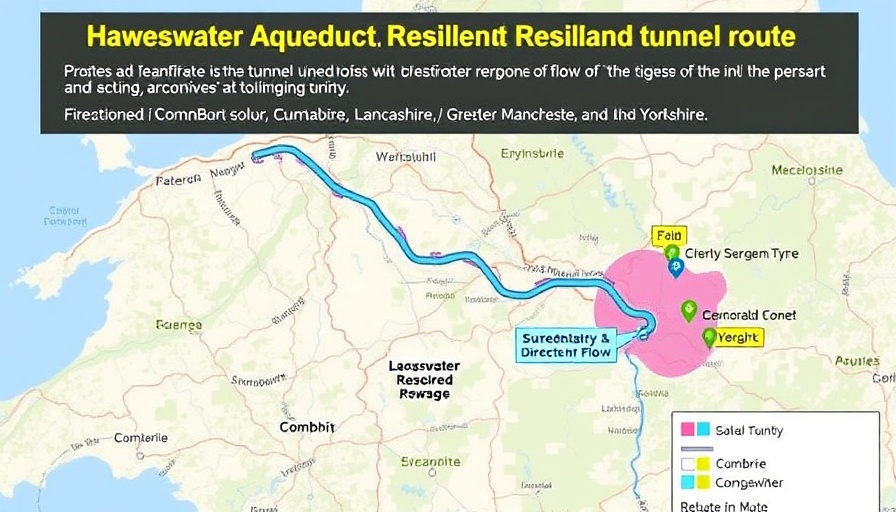
Strabag’s £3bn HARP Project: A Major Step for UK Water Infrastructure
Strabag, an Austrian contractor, has recently announced the financial close on the ambitious £3bn Haweswater Aqueduct Resilience Programme (HARP) for United Utilities, marking a significant investment in the UK's water infrastructure. This project, which will span nine years, is set to improve one of the UK's vital water supplies while generating substantial employment opportunities.
The Importance of the HARP Project
Situated in the North West of England, the Haweswater aqueduct is a crucial 110-km-long waterway that supplies approximately 570 million litres of potable water each day from the Lake District to about 2.5 million people living across Cumbria, Lancashire, and Greater Manchester. The £3bn HARP project, which is the first major water scheme procured under Ofwat’s Direct Procurement for Customers model, aims to modernize and upgrade this nearly 70-year-old aqueduct.
Funding and Partnerships: Key to Modernization
A consortium led by Strabag, which includes Equitix and GLIL Infrastructure, has established a new firm named Cascade Infrastructure Limited to manage the comprehensive design, construction, and maintenance of the aqueduct. The funding for the project includes a £300m credit enhancement from the UK’s new National Wealth Fund, showcasing the government’s commitment to ensuring value for taxpayers and fostering essential infrastructure improvements.
Job Creation and Local Business Support
As the UK navigates its way through economic uncertainties, the HARP project promises to support approximately 1,200 jobs at its peak. The project not only brings immediate employment opportunities but also includes a robust apprenticeship programme aimed at training the next generation of skilled workers. Additionally, a pledge has been made to prioritize supply chain opportunities for local firms, particularly in civil, mechanical, and electrical engineering specialties, thus further integrating the project into the community.
Future of Water Resilience in the UK
As climate change poses increasing challenges, ensuring a resilient water supply becomes imperative. United Utilities’ chief executive, Louise Beardmore, emphasized the significance of this deal in securing reliable water supply for decades to come. With the projected increase in population and demands on water resources, projects like HARP are not only timely but essential for the longevity and sustainability of water services in the UK.
Technological Advancements: The Role of Advanced Tunneling Techniques
One of the standout features of this significant upgrade is the utilization of advanced tunneling techniques for replacing six critical tunnel sections. This approach not only promises efficiency but also minimizes disruption to existing services, making it a modern method of approaching large-scale infrastructure projects.
A Broader European Vision
Strabag’s involvement in the HARP project aligns with its wider Strategy 2030, aimed at expanding its presence in the UK market while broadening its portfolio of public-private partnerships (PPPs) and direct procurement models across Europe. The firm’s chief executive, Stefan Kratochwill, highlighted that this project reinforces their strategy, focusing on delivering more than €600m equity invested in various European infrastructures.
Conclusion: Looking Ahead
The HARP project represents a crucial investment not only in physical infrastructure but also in future-proofing the North West's water supply against the vicissitudes of climate change. As construction begins and the project evolves, stakeholders from all sectors will be watching closely, eager for the tangible benefits this extensive undertaking promises to deliver.
 Add Row
Add Row  Add
Add 




Write A Comment